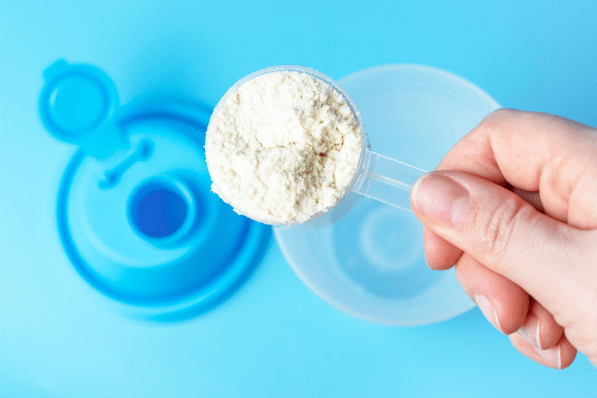Creatine, a naturally occurring compound found in muscle cells, has become a staple in the fitness world. Its ability to enhance muscle mass, strength, and exercise performance makes it a go-to supplement for athletes and fitness enthusiasts. In this comprehensive guide, we’ll delve into how to use Creatine effectively, focusing on the optimal dosage and timing for maximum benefits.
Understanding Creatine and Its Benefits
Before diving into the specifics of dosage and timing, it’s essential to understand what Creatine is and how it benefits your body. Creatine is a substance that plays a crucial role in energy production, particularly during high-intensity, short-duration exercises like sprinting or weightlifting.
The Science Behind Creatine
When you consume Creatine, it binds with phosphate in your body, forming creatine phosphate. This compound is a key player in the production of adenosine triphosphate (ATP), the primary energy molecule for cellular processes, including muscle contractions.
Optimal Dosage of Creatine
Determining the right amount of Creatine to take is crucial for its effectiveness. The commonly recommended dosage of Creatine is 3-5 grams per day. This amount is sufficient to maintain the elevated levels of creatine phosphate in your muscles, necessary for improved performance.
Loading Phase: Is It Necessary?
Some suggest starting with a loading phase, where you take a higher dose of Creatine (typically 20 grams per day) for a short period (5-7 days). This rapid saturation of your muscles can lead to quicker results. However, it’s not a mandatory step. You can still achieve the same benefits with the standard 3-5 grams per day, although it might take a bit longer.
Timing Your Creatine Intake
When it comes to the timing of Creatine intake, there are two primary schools of thought: pre-workout and post-workout.
Pre-Workout Creatine
Taking Creatine before your workout can ensure that your muscles are saturated with creatine phosphate, potentially enhancing your performance during the session.
Post-Workout Creatine
Conversely, consuming Creatine post-workout might be more effective for muscle recovery and growth. After a workout, your muscles are like sponges, ready to absorb nutrients, including Creatine.
Balancing Creatine with a Healthy Diet
It’s also important to consider your overall diet when taking Creatine. A well-balanced diet rich in proteins, carbohydrates, and healthy fats enhances the effectiveness of Creatine. Staying hydrated is also crucial, as Creatine can increase water retention in your muscles.
The Role of Protein and Carbohydrates
Protein and carbohydrates play a vital role in muscle repair and growth. Combining Creatine with a meal rich in these nutrients may improve its absorption and efficacy.
Creatine and Hydration: A Vital Combination
Creatine increases water retention in muscle cells, which can be beneficial for muscle growth. However, this also means you need to increase your water intake to stay properly hydrated.
The Impact of Creatine on Different Exercise Types
Creatine isn’t just for weightlifters or sprinters. Its benefits extend across various types of exercises, including endurance sports, though its effects are more pronounced in activities requiring short bursts of high-intensity effort.
Endurance Sports and Creatine
While Creatine is primarily known for its benefits in strength and power activities, some research suggests it can also aid in endurance sports by improving recovery and reducing exercise-induced muscle damage.
Creatine for Cognitive Function
Interestingly, Creatine’s benefits aren’t limited to physical performance. Emerging research points to its potential in enhancing cognitive function, particularly in situations of sleep deprivation or mental fatigue.
Brain Health and Creatine
Creatine supplementation has shown promising results in improving memory and processing speed, especially in individuals with lower levels of Creatine due to dietary habits, like vegetarians.
The Role of Creatine in Aging and Muscle Health
As we age, maintaining muscle mass and strength becomes increasingly important. Creatine can play a vital role in this aspect, helping older adults preserve muscle mass and functional strength.
Creatine and Sarcopenia
Sarcopenia, the age-related loss of muscle mass, can be combatted to an extent with Creatine supplementation, especially when combined with resistance training.
Creatine for Vegetarians: A Special Consideration
Vegetarians often have lower baseline levels of Creatine due to the absence of meat in their diet. Supplementation can be particularly beneficial in these cases, leading to significant improvements in muscle mass and strength.
Understanding Creatine Forms: Monohydrate and Others
While Creatine monohydrate is the most studied and commonly used form, other forms like Creatine hydrochloride and Creatine ethyl ester are also available. However, most research indicates that monohydrate is just as effective as other forms and is often more cost-effective.
Creatine Purity and Quality
When selecting a Creatine supplement, purity is crucial. Look for products that are certified by third-party organizations for quality assurance.
Creatine and Women: Debunking Myths
Contrary to some myths, Creatine is equally beneficial for women, providing the same performance-enhancing benefits without the fear of ‘bulking up’ excessively.
Creatine and Children: Is It Safe?
For children and adolescents, Creatine might be beneficial, particularly in young athletes. However, it’s important to approach this with caution and consult with a healthcare provider, as most studies focus on adult populations.
Combining Creatine with Other Supplements
Creatine can be effectively combined with other supplements like whey protein, beta-alanine, and branched-chain amino acids (BCAAs) for enhanced performance benefits.
Synergistic Effects with Beta-Alanine
Beta-alanine, known for its role in increasing muscle carnosine levels, works synergistically with Creatine. This combination can lead to further improvements in strength and endurance performance.
Conclusion: A Holistic Approach to Creatine Supplementation
Incorporating Creatine into your fitness regime can significantly enhance your physical and cognitive performance. However, it’s vital to adopt a holistic approach, considering factors like diet, hydration, exercise type, and overall health. Consulting with a healthcare professional can provide personalized guidance, ensuring that Creatine supplementation is both safe and effective for your specific needs.
Creatine stands out as a well-researched, safe, and versatile supplement. By understanding its multifaceted benefits and integrating it wisely into your lifestyle, you can effectively harness its full potential.

